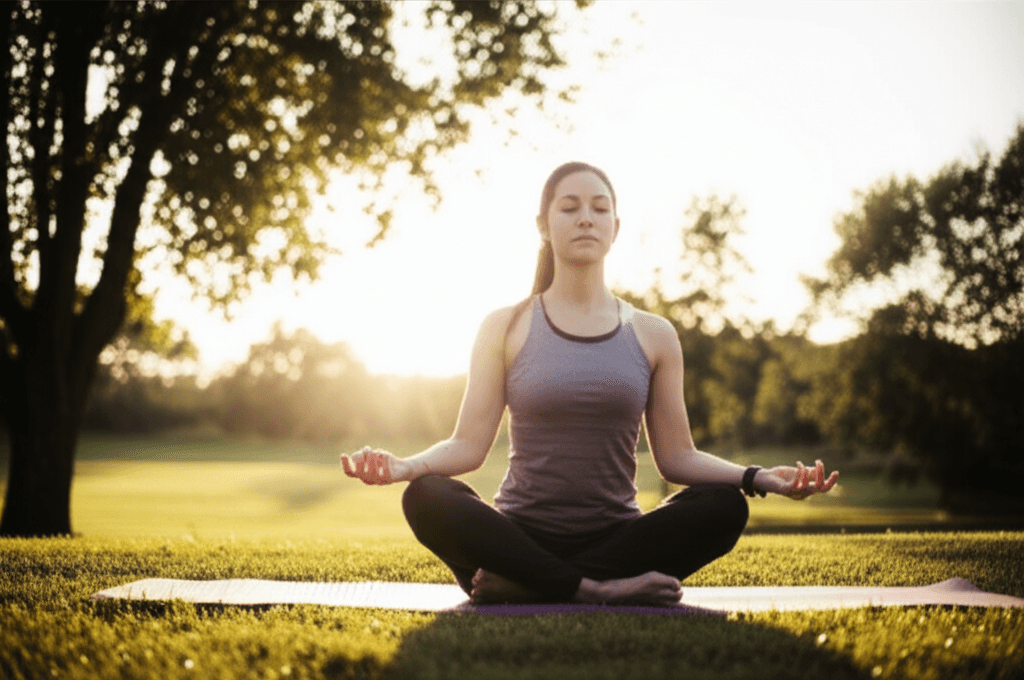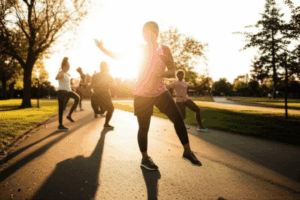In an age where mental health challenges are increasingly prevalent, finding accessible and effective strategies for well-being is paramount. While often celebrated for its physical benefits, exercise stands out as a powerful, natural intervention with a profound and multifaceted impact on mental health. Far from being just a physical endeavor, regular physical activity is a cornerstone of psychological resilience, offering a diverse array of benefits from mood regulation to enhanced cognitive function.

The Immediate Chemical Boost: Endorphins and Neurotransmitters
One of the most well-known and immediate effects of exercise on mental health is the “runner’s high,” a feeling of euphoria attributed to the release of endorphins. Endorphins are natural brain chemicals that improve one’s sense of well-being and act as natural painkillers.
Beyond endorphins, physical activity stimulates the production and regulation of other crucial neurotransmitters, including dopamine, norepinephrine, and serotonin. These chemicals play vital roles in regulating mood, motivation, focus, and attention. By boosting their levels, exercise can lead to feelings of happiness, relaxation, and reduced anxiety. For instance, the immediate increase in dopamine, norepinephrine, and serotonin levels through physical activity works similarly to how some ADHD medications function, improving focus and attention.

A Powerful Antidote for Depression and Anxiety
Extensive research demonstrates exercise’s efficacy in managing and even preventing mental health conditions like depression and anxiety.
Combating Depression
Studies show that regular exercise can be as effective as antidepressant medication for mild to moderate depression, and without the associated side effects. For example, a 2019 study suggested that running for 15 minutes a day or walking for an hour could reduce the risk of major depression by 26 percent. Exercise helps alleviate depressive symptoms by:
- Modulating brain chemicals: Increasing levels of brain-derived neurotrophic factor (BDNF), a protein crucial for learning and cell growth in the brain, which can decrease depressive thoughts.
- Reducing rumination: Aerobic exercise and yoga have been found to decrease depressive symptoms by helping participants ruminate less.
- Offering a healthy coping mechanism: Engaging in something positive to manage symptoms provides a constructive outlet.
Different types of exercise, including walking or jogging, yoga, strength training, and dancing, have all shown effectiveness in treating depression, with benefits often proportional to the intensity prescribed.
Alleviating Anxiety
Exercise is a natural and effective treatment for anxiety, helping to relieve tension, stress, and boost overall well-being. It can significantly reduce anxiety symptoms by:
- Releasing endorphins: The “feel-good” chemicals help reduce stress and improve mood.
- Distraction from negative thoughts: Physical activity can provide a much-needed break from the cycle of worries that fuel anxiety.
- Reducing physiological reactivity to stress: Regular exercisers may become less affected by the stress they face, providing a buffer against future stress.
- Decreasing stress hormones: Exercise can lower stress hormones like cortisol.
Even brief periods of aerobic exercise, as little as five minutes, can start to stimulate anti-anxiety effects. Vigorous exercise, in particular, has been linked to a 25% lower likelihood of developing depression or an anxiety disorder over five years. All forms of exercise, including aerobic, yoga, and other types, can relieve anxious states, with moderate to high intensity and longer durations often yielding more significant effects.

Cognitive Enhancement: Sharper Mind, Better Focus
The benefits of exercise extend beyond mood to directly impact cognitive function, making the brain work better.
- Improved Memory and Thinking: Exercise stimulates the growth of new brain cells and helps prevent age-related cognitive decline. It enhances memory abilities, attention processes, and executive control functions. Even in individuals at risk for dementia, physical activity can stave off decline and improve function.
- Enhanced Focus and Attention: Physical activity immediately boosts neurotransmitter levels like dopamine, norepinephrine, and serotonin, which are critical for focus and attention, similar to how ADHD medications work. A meta-analysis of over 2,700 studies found that exercise interventions significantly improved general cognition, memory, and executive function across all populations and ages. Children, adolescents, and those with ADHD experienced the greatest improvements in memory and executive function.
- Neuroplasticity: Exercise promotes neuroplasticity, the brain’s ability to form new neural connections, which is essential for learning throughout life. This is particularly noticeable in the hippocampus, a brain region vital for memory.

Secondary Benefits: A Holistic Approach to Well-being
Beyond direct psychological and cognitive impacts, exercise provides several secondary benefits that contribute significantly to overall mental health.
Improved Sleep Quality
Regular physical activity is a powerful tool for improving sleep. It can help individuals fall asleep faster, achieve better and deeper sleep, and reduce sleep complaints and insomnia.
- Mood Stabilization and Decompression: Exercise helps stabilize mood and decompress the mind, processes crucial for naturally transitioning to sleep.
- Reduced Sleep Disorders: Regular exercise can alleviate symptoms of sleep disorders like insomnia and obstructive sleep apnea.
- Increased Slow-Wave Sleep: Moderate aerobic exercise increases the amount of slow-wave (deep) sleep, allowing the brain and body to rejuvenate.
For most people, even 30 minutes of moderate aerobic exercise can improve sleep quality on the very same night.
Boosted Self-Esteem and Confidence
Exercise offers a direct path to improved self-esteem and body image.
- Achievement and Goal Setting: Meeting exercise goals, even small ones, can significantly boost self-confidence and a sense of accomplishment.
- Improved Body Image: Regular activity can lead to feeling better about one’s appearance and physical fitness.
- Chemical Boost: The release of endorphins and other “feel-good” hormones also contributes to a more positive outlook on life, indirectly enhancing self-esteem.
Studies indicate that even just five minutes of activity can increase self-esteem and improve mood.
Social Connection and Support
Engaging in physical activity, especially with others, offers valuable social benefits.
- Opportunity for Interaction: Group classes, team sports, or even walking with a friend provide opportunities for social interaction and building connections.
- Sense of Community: Exercising with others can foster a sense of belonging and support, which is vital for mental well-being.
- Reduced Social Anxiety: Regular exercise can reduce anxiety, which in turn can make individuals more open to social interactions. Moving and collaborating in group settings can also lead to increased trust and a sense of partnership.

Integrating Exercise into Daily Life
The good news is that significant benefits do not require becoming an elite athlete. Modest amounts of exercise can make a real difference. Experts recommend adults aim for 2.5-5 hours of moderate physical activity or 1.25-2.5 hours of vigorous physical activity per week, along with muscle-strengthening exercises on at least two days a week.
The key is consistency and finding activities you enjoy. Whether it’s brisk walking, jogging, dancing, yoga, swimming, cycling, or strength training, any movement is better than none. Exercising outdoors may offer even greater benefits, with reported higher levels of vitality, enthusiasm, pleasure, and self-esteem.
Conclusion
Exercise is a holistic and powerful intervention for mental health, offering both immediate mood boosts and long-term protective effects against a range of psychological challenges. By influencing brain chemistry, reducing stress, improving cognitive function, enhancing sleep, and fostering self-esteem and social connection, physical activity provides a comprehensive pathway to improved well-being. Incorporating regular exercise into one’s routine is not merely an investment in physical health, but a vital strategy for cultivating a resilient and thriving mind.







